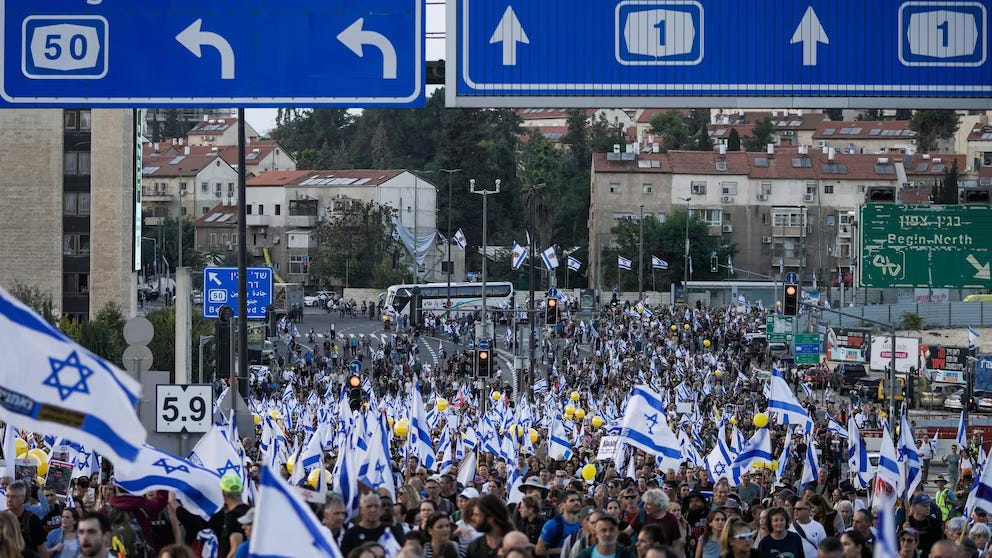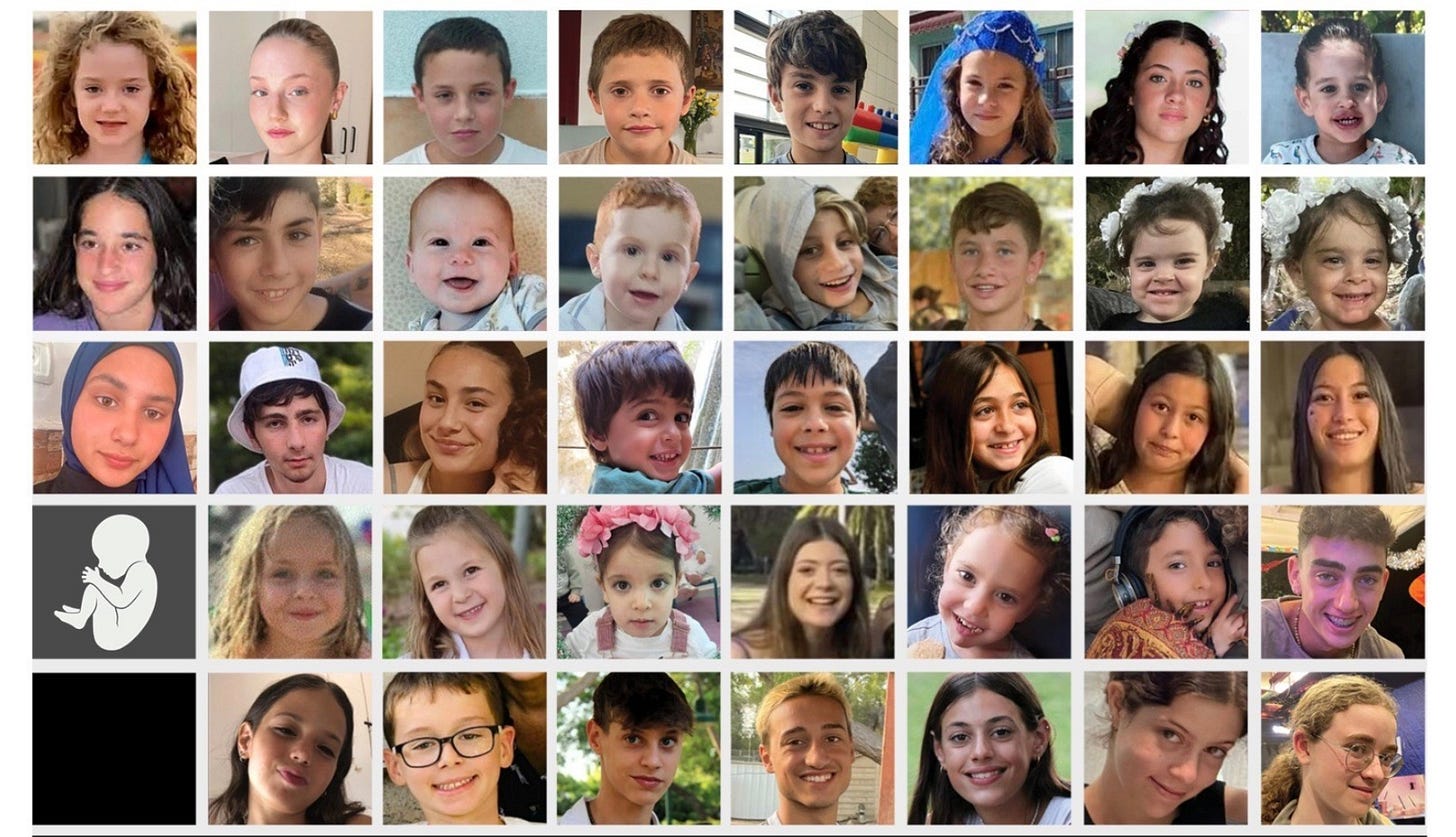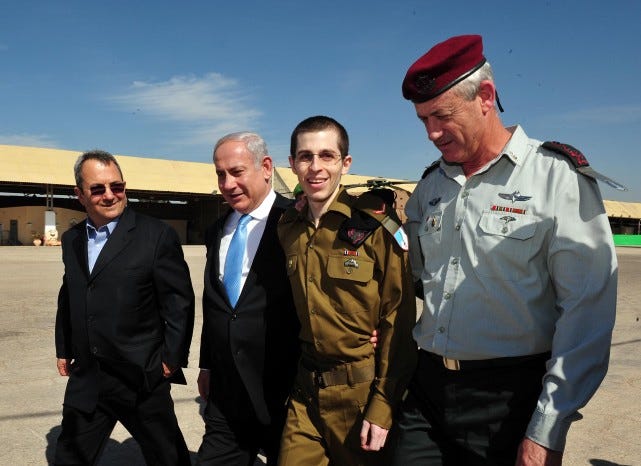Within its political reality, Israel has forged a good deal to free the hostages
It may very well be the best chance the Israelis have to secure the freedom of a large batch of their civilians.
Israel and Hamas are said to be in the final stages of a prisoner exchange deal that will surely make waves around the world.
So I thought I’d give you my take on the developing Israel-Hamas hostage deal, and I’m happy to hear your thoughts in the comments section.
First and foremost…
In an ideal world, Israel remains committed to the principle of total victory, and only stops its counter terrorist operation once Hamas surrenders or ceases to exist. Jerusalem has created many of its political and diplomatic problems through engaging terrorist organizations as if they are legitimate governing entities.
Clearly, the principle of “no negotiations with terrorists” does not currently exist in the political environment that the Israeli government exists within. Despite the corporate media telling you otherwise, we don’t live in a world in which Israel is willing to obliterate its enemy by any means necessary. They’ve decided to engage with Hamas through intermediary governments, and we must deliver our analysis through the rules that the Israeli society and Hamas have applied to themselves.
There is enormous domestic pressure on both the Israeli military and political establishments to bring home these hostages by any means necessary. As much as that stings for many, this of course includes negotiations with Hamas, whose leaders have come to the negotiating table for fear of losing control over Gaza.

As I understand it, the structure of the deal is as follows:
-Hamas will release approx 50 Israeli children and women.
-Israel will release 150 Palestinian women and teenagers (who likely acted as Hamas jihadists) jailed by Israel, as well as agree to a pause in the war that would last several days.
There is also a reported “second phase” in the works, through which Hamas could release dozens of Israeli hostages in exchange for extending the ceasefire by several more days.
Before we analyze the deal, it must be understood in the context of previous negotiations, specifically, the now-infamous Gilad Shalit deal.
In 2011, Shalit, an IDF soldier captured by Hamas, was released by Hamas in exchange for 1,027 prisoners, 280 of whom had been sentenced to life in prison for committing terrorist attacks against Israelis. One of those Palestinian prisoners was Yahya Sinwar, the current leader of Hamas in Gaza, and enemy number one for the IDF. By any metric, the deal has had devastating ramifications for Israel’s sovereignty and security
The disastrous Shalit deal, which was backed by Prime Minister Benjamin Netanyahu, created great incentives for Hamas to capture Israeli civilians, and it has come back to haunt Israel time and again, especially during the October 7 Hamas massacre in southern Israel.
Nonetheless, with the Shalit deal being the old baseline, Israel has a much improved structure with these reported numbers. Netanyahu, who again is serving as prime minister, reportedly supports this deal too.
Israel achieved this improved negotiating position through its aggressive military operation in Gaza. Instead of “mowing the grass,” the Israelis are finally playing to win, and Hamas commanders know it. This has forced Hamas leaders to endlessly beg for a ceasefire and negotiate against itself with prisoner exchange offers.
A 3 to 1 ratio is not good in a vacuum, but with the Shalit deal as precedent, it's substantially better than 1027 to 1.
If Hamas follows through on these terms (a BIG if), I would consider this a worthy deal for Israel to accept. It resets the awful baseline to a much better standard for current and future negotiations, and delivers a much-needed morale boost to the Israeli people.
On the other hand, there are many risks for Israel in the event that they move forward with this deal. First, it will certainly disrupt the momentum and success they’ve had in Gaza, which has seen a remarkably lopsided military casualty rate in favor of the Israeli army. Second, as many commentators have already warned, it creates an incentive for both Hamas and pro-Hamas entities to find ways to continue capturing hostages and stalling out Israel’s operation.
Nonetheless, Israel achieved these better terms through a course change from previous military strategy. Most notably, it was their vigorous counter terrorist operation in Gaza that made Hamas blink.
There are many reasons for both optimism and pessimism surrounding the deal. But it may very well be the best chance the Israelis have to secure the freedom of a large batch of their civilians. Within the political framework that Israel has imposed upon itself, getting these hostages freed and agreeing to this deal seems like the right play.






Ultimately all Hamas in Gaza must be killed or caged, obviously. Any deal which precludes the destruction of Hamas in Gaza will eventually result in more slaughter of Innocents by Hamas, both those targeted and those used by Hamas as human shields.
Rock and a hard place. Get the women and children out and destroy Hamas. Hamas/ ISIS/ Muslim Brotherhood must be crushed. Political “reality” is what created this problem in the first place. Hamas is a criminal terrorist gang with no mercy. They deserve no mercy in return. As far as the fundamentalist Arab world, commies, useful idiots of the Left and hardcore antisemites on the right, who cares? They are not persuadable and would like nothing better than to see Jews suffer. Honestly the production of a ceasefire won’t convey any military advantage to Hamas. It’s all propaganda from their side. If they had the capacity to beat Israel, they would have done it. This is psychological.
All that matters is strength in the face of adversity and crushing these medieval cretins.
Israel can’t negotiate away its advantage or its sovereignty.Then execute the billionaire Hamas creeps who hide in Qatar. Cowards.